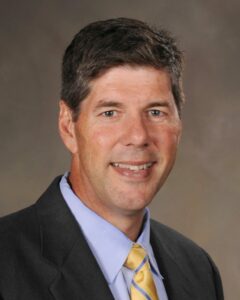
Theologian Dallas Willard wrote, “I’m practicing the discipline of not having to have the last word.” It’s a discipline I definitely need (just ask my husband), and I can’t help but wonder how much better off our country would be if everyone did likewise.
Recently we have watched unspeakable carnage as thug-protestors chose to get the last word under the pretense of seeking justice for the death of George Floyd by police officer Derek Chauvin. Buildings and vehicles were set on fire and stores looted as angry mobs defied curfew orders and stood nose-to-nose with officers attempting to seek order. Post offices, banks, book stores, CNN’s headquarters and a church were among the targeted areas. My girlfriend in San Francisco shared that protestors took over a freeway in nearby Oakland where some used baseball bats on windows of the stopped cars… their way of getting the last word, I guess.
I’m sure that we all have questioned the hatred in Chauvin’s act. How was he so determined to get the final say that he callously dismissed the desperate last words of Floyd, calling out for his mother? But Chauvin’s behavior is not the only one I find alarming. How could someone stand by and video an officer kneeling on a man’s neck and not intervene?
And then there are the violent rioters. Is it possible that they believe that answering hate with the “last word” of more hate is a justifiable action? Will the new Samsung television they just stole from Target improve racial tensions? Will the desecration of a monument to the victims of Armenian genocide (itself dedicated to fight racism) in Colorado help others recognize with more clarity the horror of Floyd’s death? Does the destruction of 580 pair of eyeglasses in a privately-owned optometry shop bring resolution to the injustice done to blacks? How does spray painting city buses or tossing fireworks into a jailhouse prevent further vitriol? Are we now filled with more compassion for the arsonists as we watch the newscasts of burned police cars, paid for by our taxpayer dollars?
The point is this: Do these violent rioters not know that their “last word” has done nothing to help reduce racism in our country?
How tragic, that instead of creating unspeakable carnage, they don’t follow the example set by the Des Moines, Iowa, protestors. According to the USA Today newspaper, following a tense situation, they knelt and then asked for police officers to do likewise, saying that they would obey the curfew and leave the area if the officers took a knee. “At the urging of a pastor from the community, senior Des Moines police officers Irvin Franklin and Jack Kamerick knelt and said a prayer.” Other officers as well as a group in riot gear agreed to the protestor’s request.
The “show of peaceful solidarity” proved that the “last word” can be one of unity and not division, and practicing it, like Willard suggests, just might be the answer we all are seeking.






